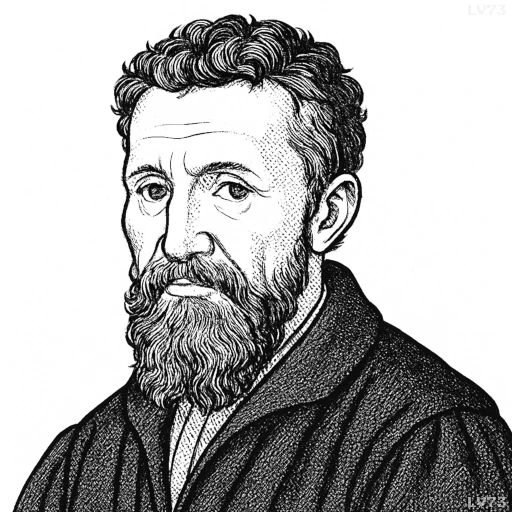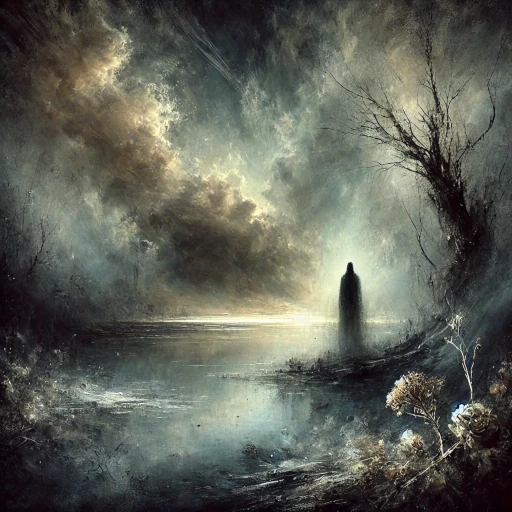“If we have been pleased with life, we should not be displeased with death, since it comes from the hand of the same master.”

- March 6, 1475 – February 18, 1564
- Born in the Republic of Florence (now Italy)
- Sculptor, painter, architect, poet
table of contents
Quote
“If we have been pleased with life, we should not be displeased with death, since it comes from the hand of the same master.”
Explanation
In this quote, Michelangelo reflects a deeply spiritual and philosophical perspective on life and death, emphasizing the unity between the two as part of a divine plan. He suggests that if we have found fulfillment and joy in life, we should not fear or resist death, as both are parts of the same cycle ordained by a higher power—whom he refers to as “the same master.” For Michelangelo, death is not something to be feared or resented, but an inevitable and natural progression that comes from the same divine source that gives us life. This view reflects the Renaissance belief in the connection between the human soul, nature, and divine providence, where both life and death are seen as aspects of a larger cosmic order.
This sentiment can be applied to modern thoughts on mortality and existential acceptance. The idea that life and death are intertwined and that we should not fear death if we have lived well resonates with many spiritual and philosophical traditions, from Stoicism to Buddhism, which teach acceptance of death as a natural part of existence. It suggests that a life well-lived, one that is full of meaning and contentment, prepares us to face death with grace rather than fear. In modern times, the quote might inspire individuals to seek a life of purpose, knowing that the end of life is simply another phase in the broader journey.
Michelangelo’s words also reflect the Renaissance humanist view, where the artist’s work was often seen as part of a divine mission, and life itself was a form of creation. For artists like Michelangelo, whose work was infused with religious and philosophical themes, death was not an end but a transition to a greater understanding or fulfillment. In this context, his quote speaks to the eternal nature of the artist’s soul and the idea that one’s creative legacy transcends the physical body. Even in his own death, Michelangelo would have believed his work—his sculptures and paintings—would continue to inspire and communicate his vision beyond his earthly existence.
Would you like to share your impressions or related stories about this quote in the comments section?


